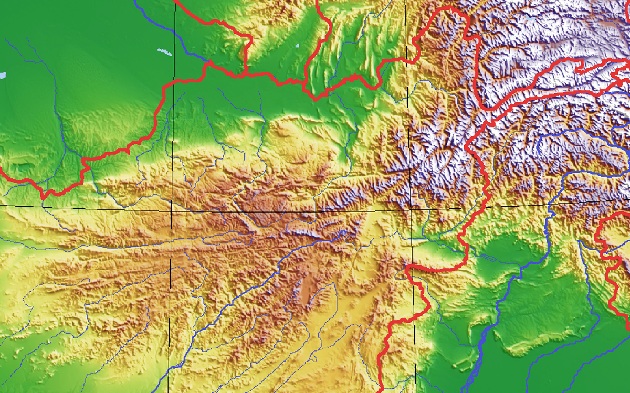I simply could not believe, while reading the US state department transcript of the High-Level Event on Afghanistan at foreign-minister level in New York on Saturday, that India chose to ‘downgrade’ its representation or worse still, skipped the meeting altogether.
It is inconceivable that Afghan foreign minister Salahuddin Rabbani (who chaired the conference) or US Secretary of State John Kerry and Chinese Foreign Minister Wang Yi (who co-chaired) forgot to invite India. The event was an important occasion for regional security and stability in South Asia, highlighting to the international and regional audience the growing desire and determination of the US and China to cooperate and coordinate over the Afghan problem and their shared interest in encouraging Pakistan and Afghanistan to resume the peace talks with the Taliban.
Perhaps, India felt isolated? On the other hand, if diplomacy is about reconciling contradictions, this was an apt occasion for India to have got actively engaged with both Kerry and Wang. Neither the Americans nor the Chinese would have slammed the door shut on India’s face.
On the contrary, they would have been delighted that instead of lurking in the shades, sulking and brooding over the spoiler’s game, India is at last collecting its thoughts and moving in as a responsible regional power to contribute to the extremely arduous enterprise of national reconciliation in Afghanistan.
Wang disclosed that President Barack Obama and President Xi Jinping exchanged views on Afghanistan at their talks in Washington on Friday and they both “pledged their support for Afghanistan’s peaceful reconstruction… (and) will each play our part and work with each other to that end”. Wang made a brilliant speech with which India could have easily identified. He underscored the need to:
- Extend strong support to the Afghan national unity government led by President Ashraf Ghani;
- “Truly respect” Afghanistan’s sovereignty, independence, and territorial integrity;
- Increase the assistance to Afghanistan “to help its government enhance its governance capacity”;
- Promote “broad-based and inclusive political reconciliation” in Afghanistan as the “only way for realizing enduring peace”;
- Encourage all Afghans to “join in the political reconciliation process expeditiously”;
- Welcome the shared desire of the Afghan government and the Taliban to resume political discussions;
- Cajole other Afghan groups to “come together to support and encourage this process and encourage the government and the Taliban to meet each other halfway and create necessary conditions for the next round of discussions”;
- Support the efforts of Afghanistan and Pakistan to “improve and develop their good neighborly relations,” which would contribute to a “peaceful and stable regional environment”;
- Step up “strategic communication” with Afghanistan, while allowing Kabul a free hand to choose its development path “with its own characteristics… (and) fits the country’s reality and actual needs”;
- Help Afghanistan’s regional integration via “regional connectivity, energy transportation, and regional trade”.
As I said, where is it that our external affairs minister Sushma Swaraj could have disagreed with Wang? Of course, Wang confidently raised China’s voice as stakeholder “China is Afghanistan’s direct neighbor.
Peace and stability in Afghanistan have a direct bearing on China’s own security and stability… we would like to reiterate our support for the Afghan-led and Afghan-owned peace and reconciliation process. And China will continue to play its constructive role in this process… we will actively advance trilateral cooperation incolcing China, US and Afghanistan and China, Pakistan and Afghanistan, and to help forge synergy among the various assistance efforts”. Wang announced the US and Chinese intention to extend their joint training programs for Afghan diplomats (which have been “proven useful”) to two other areas agriculture and public health.
India is making a serious mistake in marginalizing itself on the Afghan chessboard. The point is, with or without India, the Afghan reconciliation process (and reconstruction) will go ahead. A new phase of Sino-American collaboration in Afghanistan is sailing into view. For both Washington and Beijing, from each one’s perspective, Afghanistan becomes a testing ground for their “new type of major country relationship” like the Iran nuclear issue.
Unlike with Russia, which the US would like to keep out of Afghanistan, Washington always encouraged New Delhi to be constructively engaged in Afghan issues. China also doesn’t have a zero sum mentality vis-à-vis India’s role in Afghanistan and, in fact, Beijing would visualize the potentials of regional cooperation involving India in the wider South Asian setting. Most important, a profound US-Iranian engagement on regional issues is just about to get under way and Afghanistan is certain to be a major template in it. (Do not overlook that Foreign Minister Mohammad Javad Zarif played a pivotal role in negotiating the outcome of the Bonn conference on Afghanistan in December 2001, which paved the way for the transition from the Northern Alliance government to the interim government led by Hamid Karzai.)
Simply put, it will be a Himalayan blunder to reduce India’s stakes in Afghanistan to the stuff of the furtive games that the spooks in New Delhi and Islamabad keep playing against each other. If Afghanistan is at a crossroads, so are India’s regional policies. The thrust of the Indian diplomacy ought to be to secure a level of influence on the course of developments that serves regional stability.
The problem, once again, is the absence of a ‘big picture’. India’s diplomacy lacks a regional strategy, which is the intellectual construct, to work upon. Last year in Hyderabad House during Prime Minister Narendra Modi’s inaugural as well as on the banks of the Sabarmati River four months later, hopes were raised that India might be choreographing a regional strategy, finally, commensurate with its full potentials as a regional power. But these proved to be false hopes. No wonder, India took the easy route of giving a wide pass to the High-Level Event on Afghanistan yesterday, which was attended by the foreign ministers of Iran and Saudi Arabia, amongst others.







